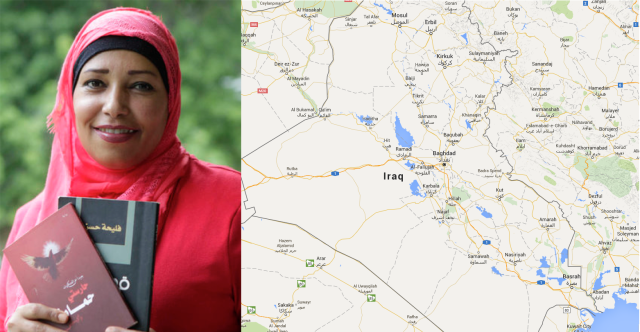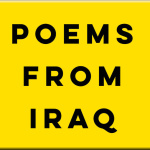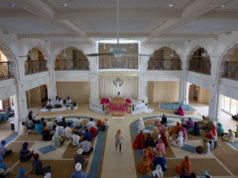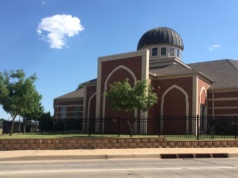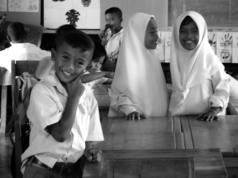
When Faleeha Hassan started middle school in the central Iraqi city of Najaf, the school director gathered her class together and told them the government had decided to close the school for 10 days, just until Iraq had won the war against Iran.
“But the war did not end in 10 days,” Hassan remembers. “It lasted eight years, and all my friends were killed in the war or went missing in it.”
It was the first time war had interrupted Hassan’s life, but it was not to be the last.
Through verses about loss and tragedy, Hassan has become one of Iraq’s most successful and celebrated poets. Sometimes called the “Maya Angelou of Iraq,” Hassan’s work has been heavily awarded and translated into dozens of languages.
Writing from her new home in New Jersey, Hassan explained via e-mail how her childhood, her faith and her war-torn nation turned her into one of Iraq’s first prominent female writers.
‘Writing is very dangerous’
Born to a wealthy family in Najaf in 1967, Hassan never allowed her gender to constrain her.
“I was the only girl that played with the boys,” she said. “I was a child spoiled by my family.”
RELATED
Faleeha Hassan’s poetry:
(Coming Saturday) At the margin of the war
Always supportive, her relatives quickly saw her literary interests. She began reading the newspaper in the second grade, and her father bought her a children’s magazine each week. She read all the classics of Arab and Western literature, but her favorite works were early Arab poetry, the oldest pieces predating Islam by centuries.
Hassan doesn’t remember exactly when she began writing, but she knew the challenge would be fierce.
“Writing is very dangerous, especially for an Arab woman if she writes honestly and freely,” she said. “Some people do not like honesty and freedom of expression, so sometimes women stop writing because they worry about themselves and their family.”
Hassan persisted, however, and in 1991 she published her first poem and her first poetry book, Because I Am a Girl.
‘We still have war and blood in the streets’
Hassan began teaching high school Arabic language and literature in 1988 but continued publishing her own work. She saw her country once again on the brink during the Persian Gulf War, but Saddam Hussein stayed in power until the 2003 American invasion of Iraq.
Hassan was, at first, cautiously optimistic about her country’s future. Hussein, after all, had been a relentless persecutor of Iraq’s Shia Muslims, and Najaf was one of the holiest cities of Shia Islam. Hassan also said that Hussein’s fall allowed for greater freedom of expression in her work.
“I was expecting that the war and destruction would end after the fall of Saddam’s regime and the entry of the Americans to Iraq,” she said, “but unfortunately we still have war and blood in the streets.”
Hassan said one of her biggest literary goals after the invasion was “to let the world know that the Iraqis are peaceful and not advocates of war.”
“We are a people of peace,” she said, “and Baghdad was called the City of Peace. All that is happening now will end soon. What appears on television or radio is exaggerated.”
‘I leave the rest to God’
In 2006, Hassan earned a master’s in Arabic Literature from the University of Kufa in Najaf. She left Iraq in 2011, first moving to Turkey, and now lives in the Philadelphia suburbs of New Jersey.
Hassan said living in America, at first, was like being “a child lost in the woods.” She said she is working to improve her English and hopes to get another teaching job in the near future. In the meantime, she continues to write.
“I leave the rest to God,” she said. “He is compassionate and merciful. I hope to see Iraq return bright and beautiful and clean from the remains of the war soon.”








